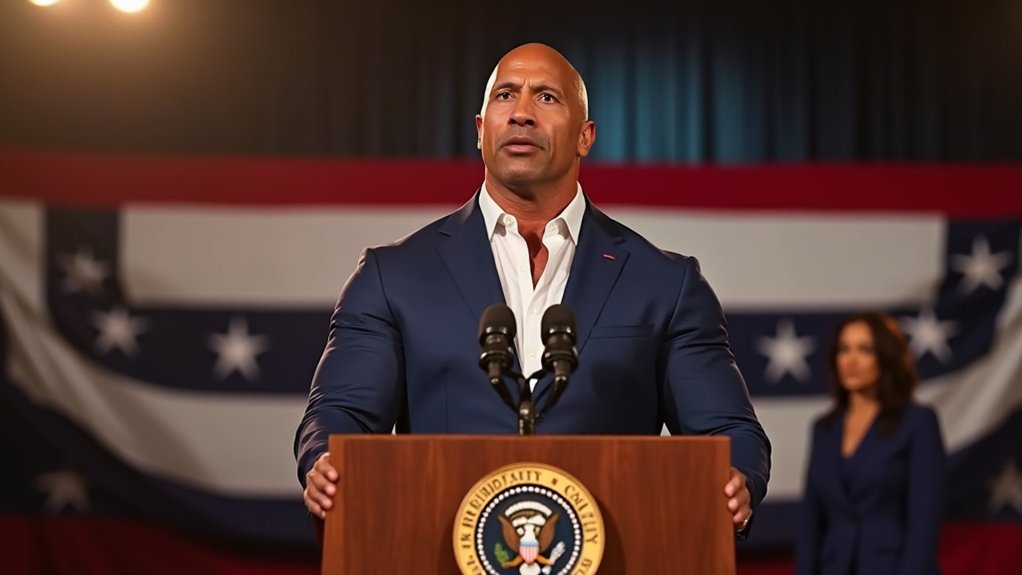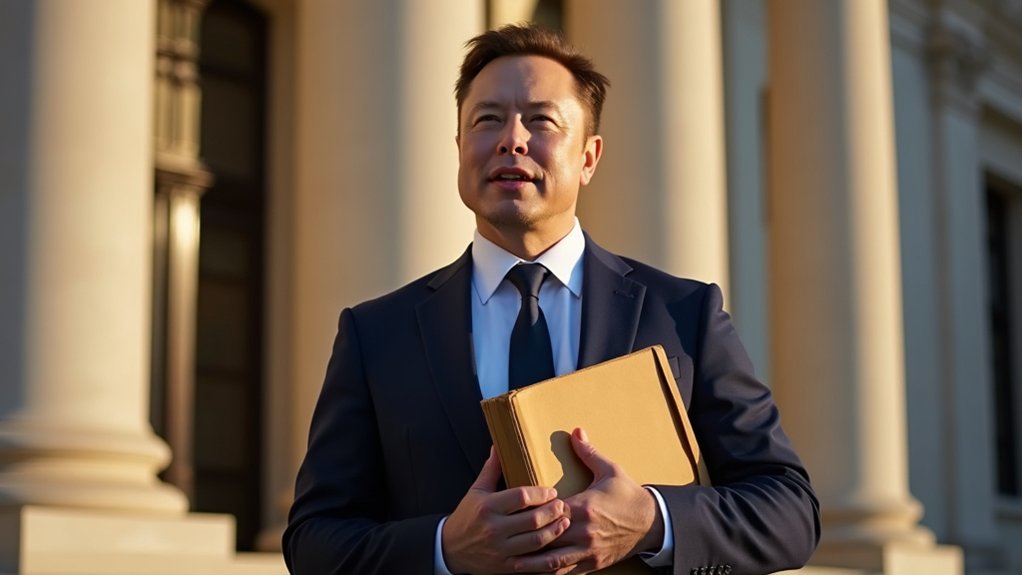Where else but in the labyrinthine world of prediction markets would a former WWE champion and Hollywood action star emerge as a serious contender for the Democratic presidential nomination, trading ahead of a sitting vice president? Polymarket’s latest odds reveal Dwayne “The Rock” Johnson commanding approximately 7% probability for the 2028 Democratic nomination, marginally outpacing Kamala Harris‘s 5%—a development that speaks volumes about both celebrity politics and the curious wisdom of betting markets.
Johnson’s position as fourth or fifth most likely nominee (depending on platform methodology) reflects more than mere celebrity fascination. With trading volumes exceeding $450,000 specifically on his candidacy within Polymarket’s $17 million Democratic nominee market, institutional money appears genuinely intrigued by his potential. The platform’s backers—including 1789 Capital and Donald Trump Jr.—lend additional gravitas to what might otherwise seem like speculative entertainment.
Institutional money exceeding $450,000 suggests genuine political viability beyond celebrity spectacle, transforming entertainment into electoral calculation.
The actor’s political positioning as a centrist independent, combined with his staggering 392 million Instagram followers, creates an intriguing value proposition for Democratic strategists. His 2020 Biden endorsement (followed by conspicuous silence in 2024) suggests calculated political maneuvering rather than impulsive celebrity activism. When 46% of poll respondents expressed support for a Johnson presidential run in 2023, traditional political calculus began shifting.
Naturally, Johnson still trails establishment favorites considerably. Gavin Newsom dominates with 31% odds, while Alexandria Ocasio-Cortez (11%) and Pete Buttigieg (7%) maintain more conventional political trajectories. This phenomenon mirrors the broader shift toward democratizing knowledge across traditional institutions, where conventional wisdom increasingly faces challenges from community-driven movements and decentralized platforms. Harris’s modest 5% probability—roughly equivalent to Kentucky Governor Andy Beshear—illustrates how quickly political fortunes can oscillate within prediction market dynamics. Meanwhile, Maryland Gov. Wes Moore has emerged with similar 5% odds, tied for seventh-most likely candidate alongside Michigan Governor Gretchen Whitmer.
What makes Johnson’s odds particularly fascinating isn’t their absolute value but their relative strength among unconventional candidates. While Mark Cuban registers 2% and LeBron James barely achieves 1%, Johnson’s 7% suggests markets perceive genuine electoral viability rather than novelty betting. Multiple political groups have reportedly approached him about running, indicating behind-the-scenes momentum that transcends mere speculation. This decentralized betting platform operates with significant backing from political insiders, including advisory board member Donald Trump Jr.
Whether this celebrity-political convergence represents democratic evolution or devolution remains debatable, but Polymarket’s traders have rendered their verdict: in 2028’s potential Democratic field, The Rock appears more electable than the former vice president.









